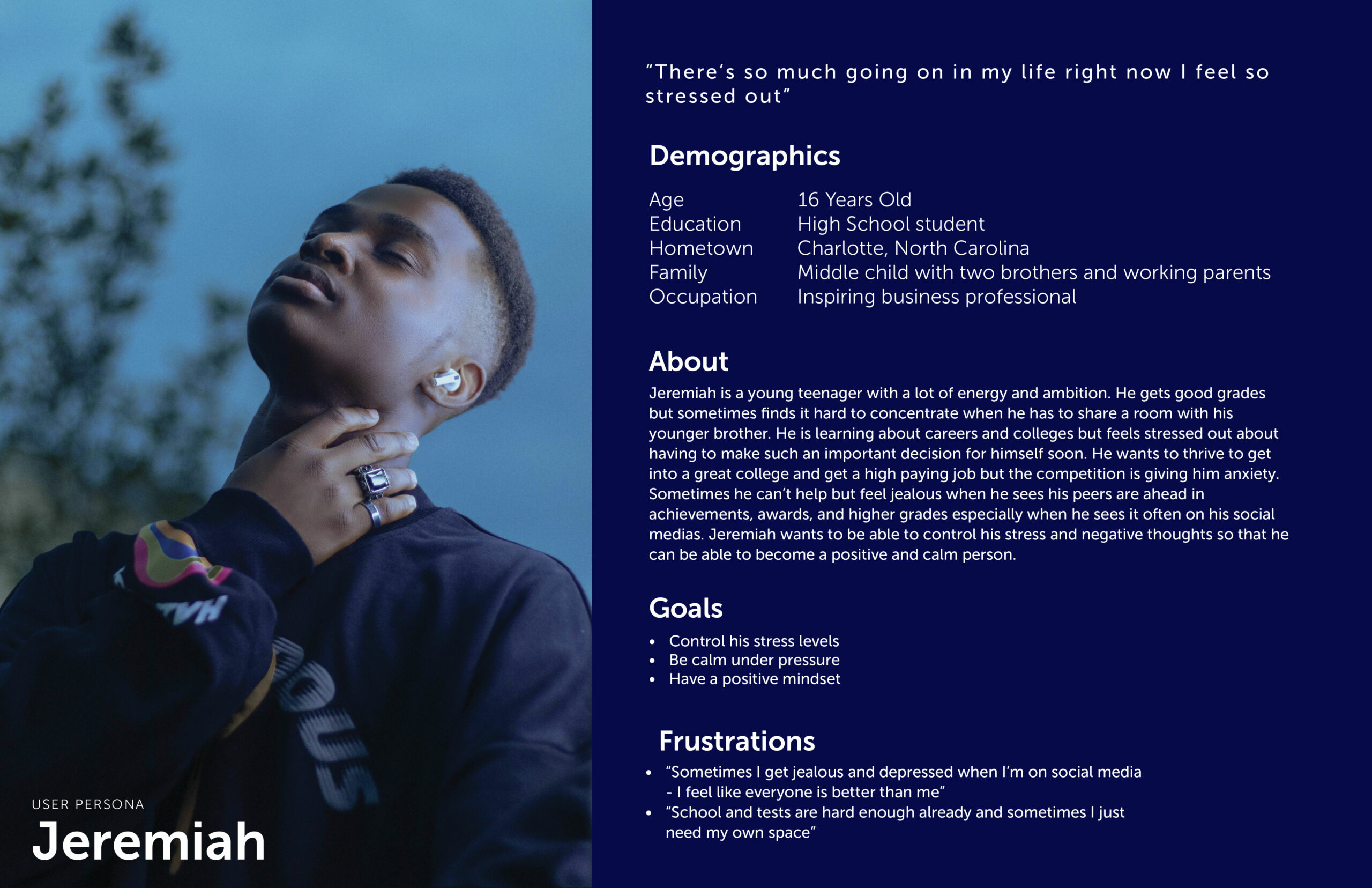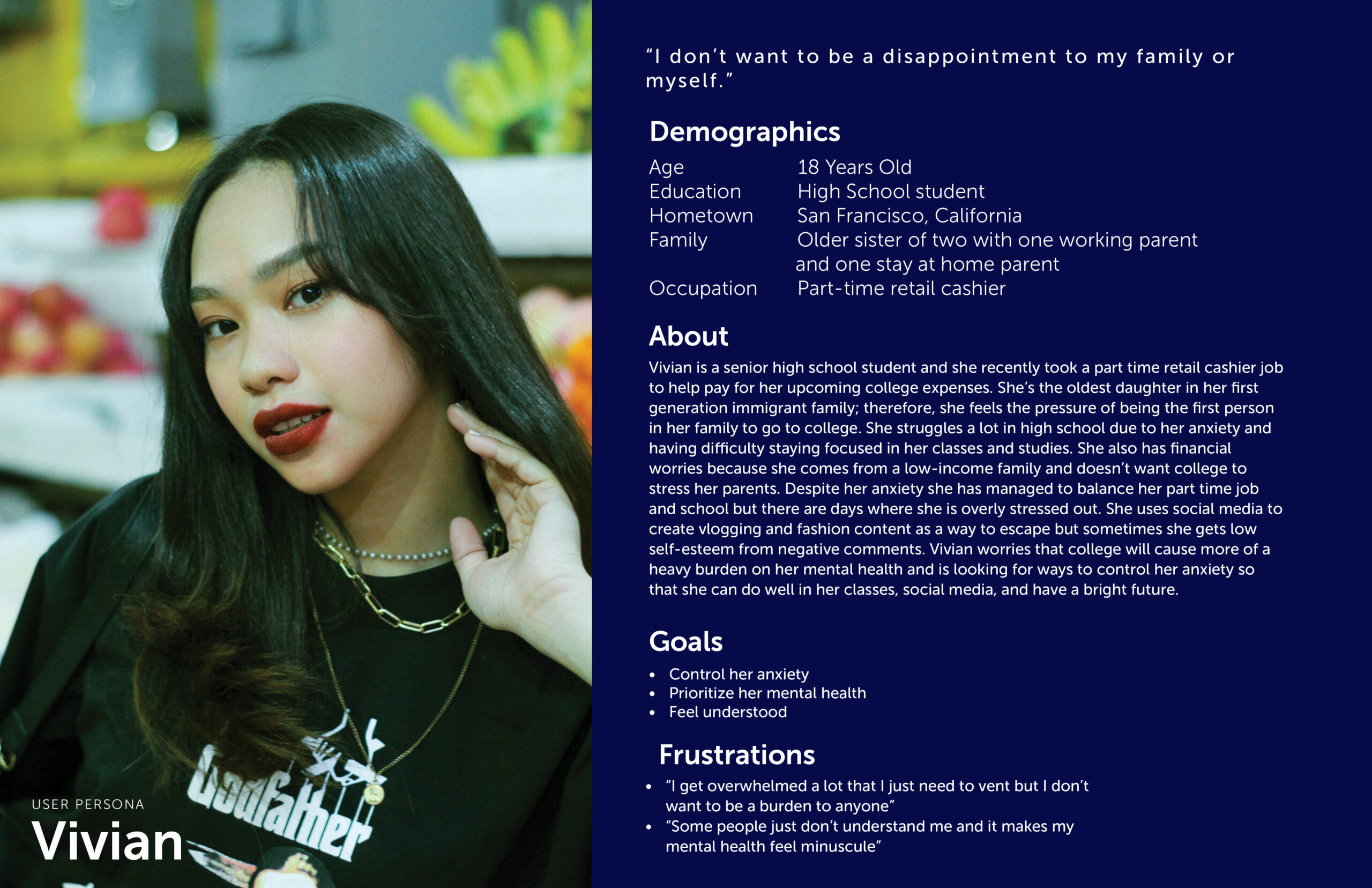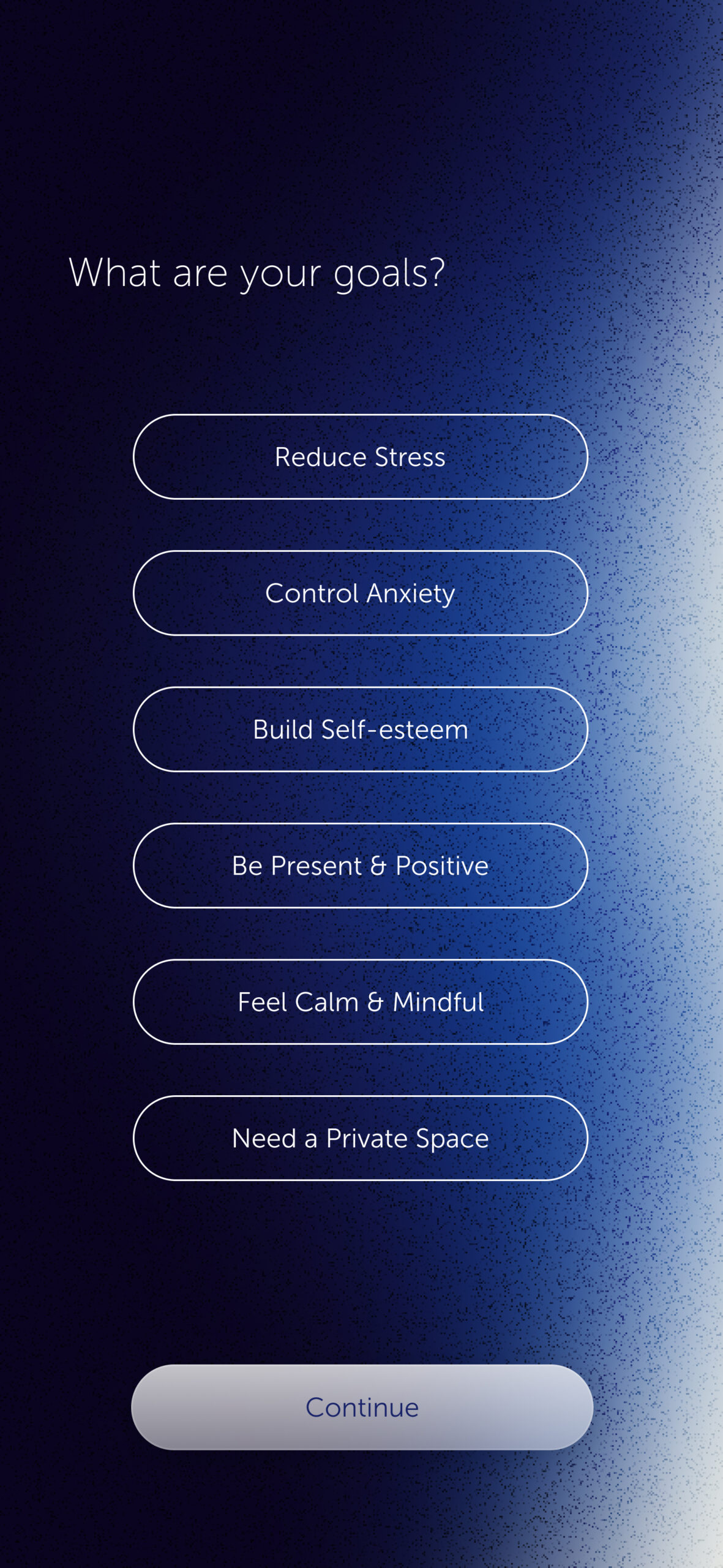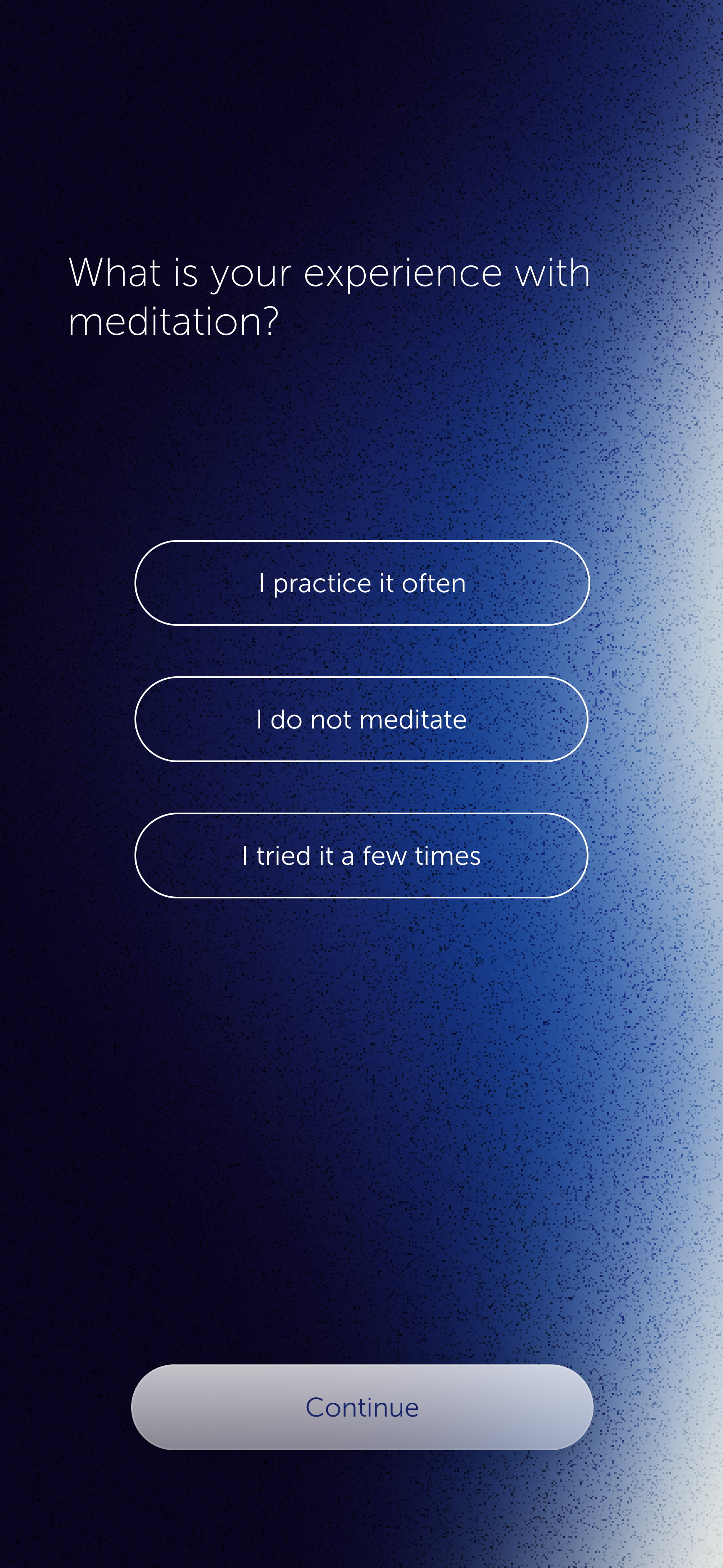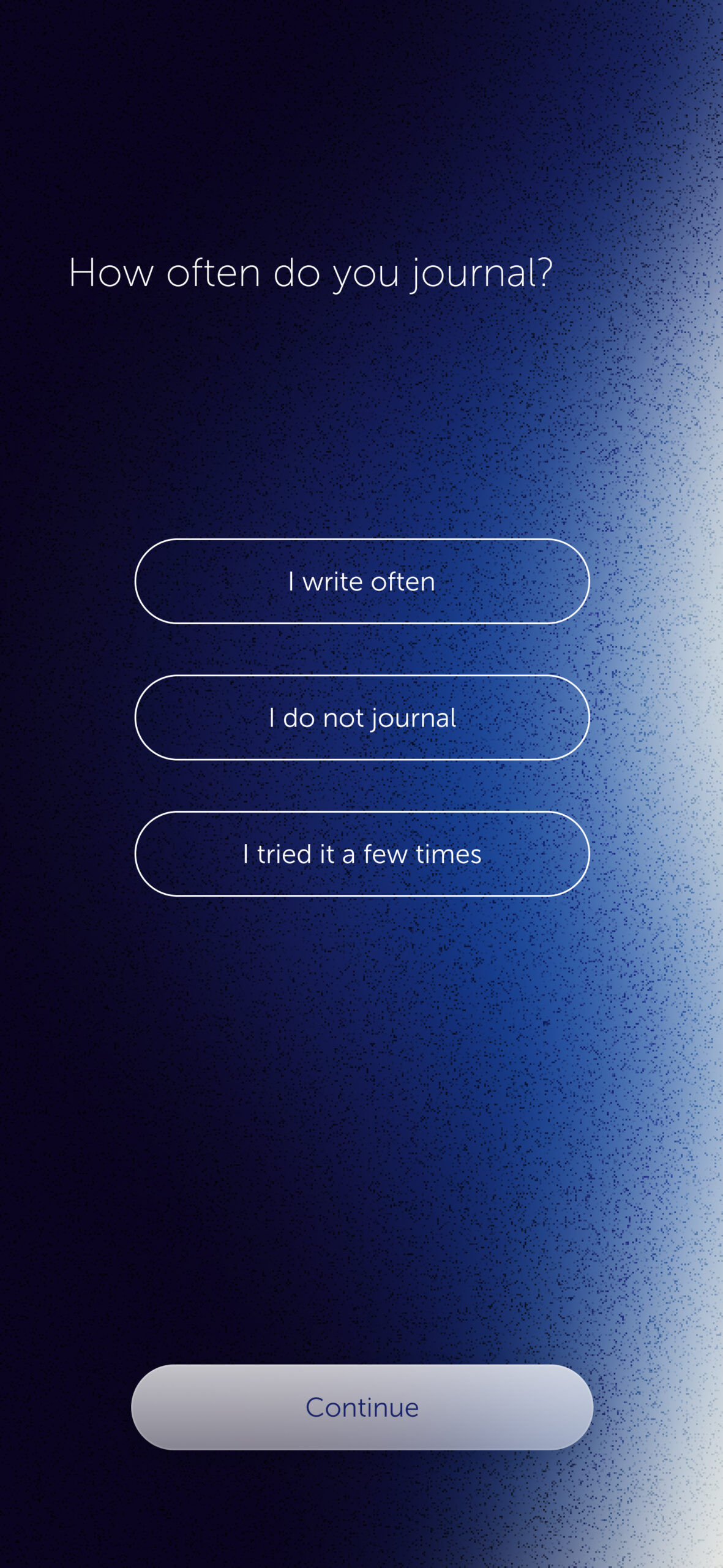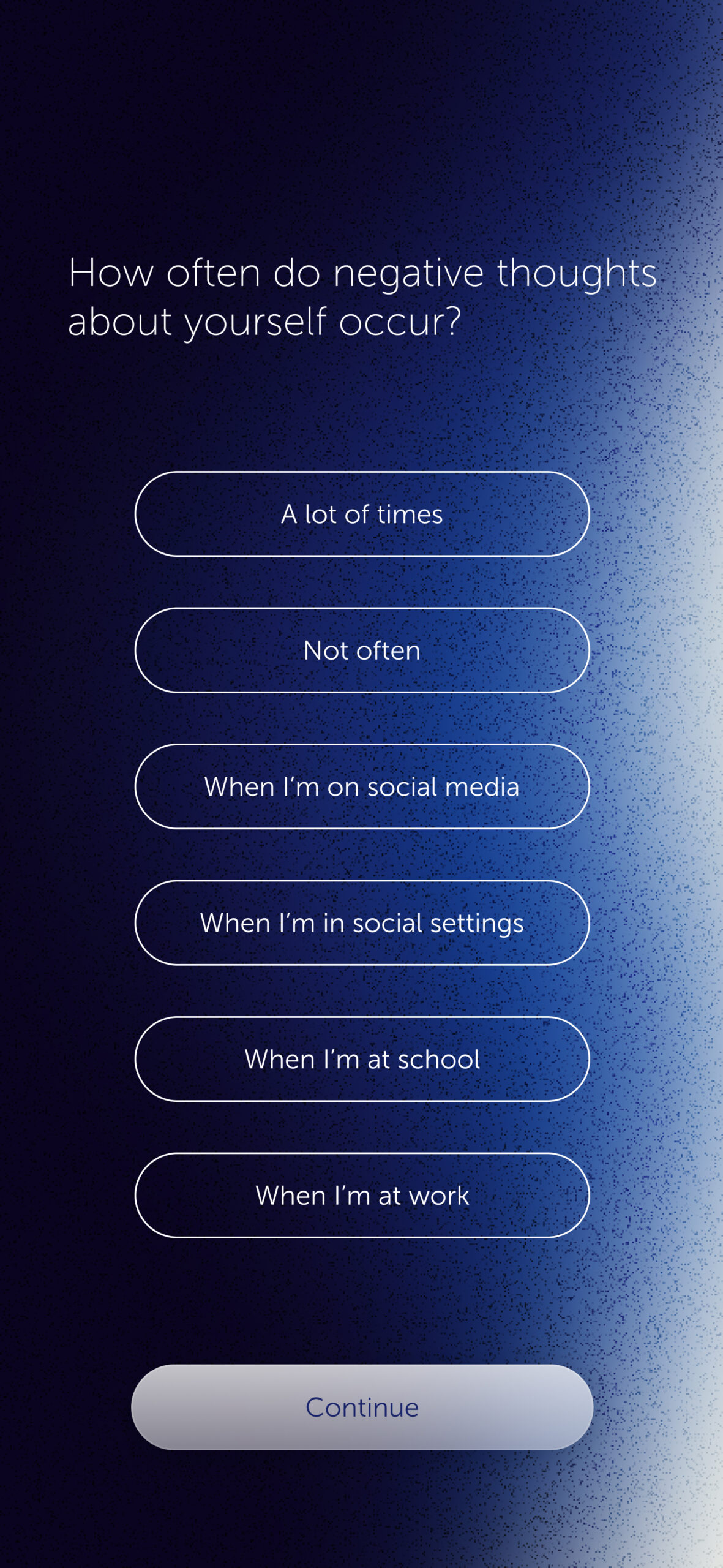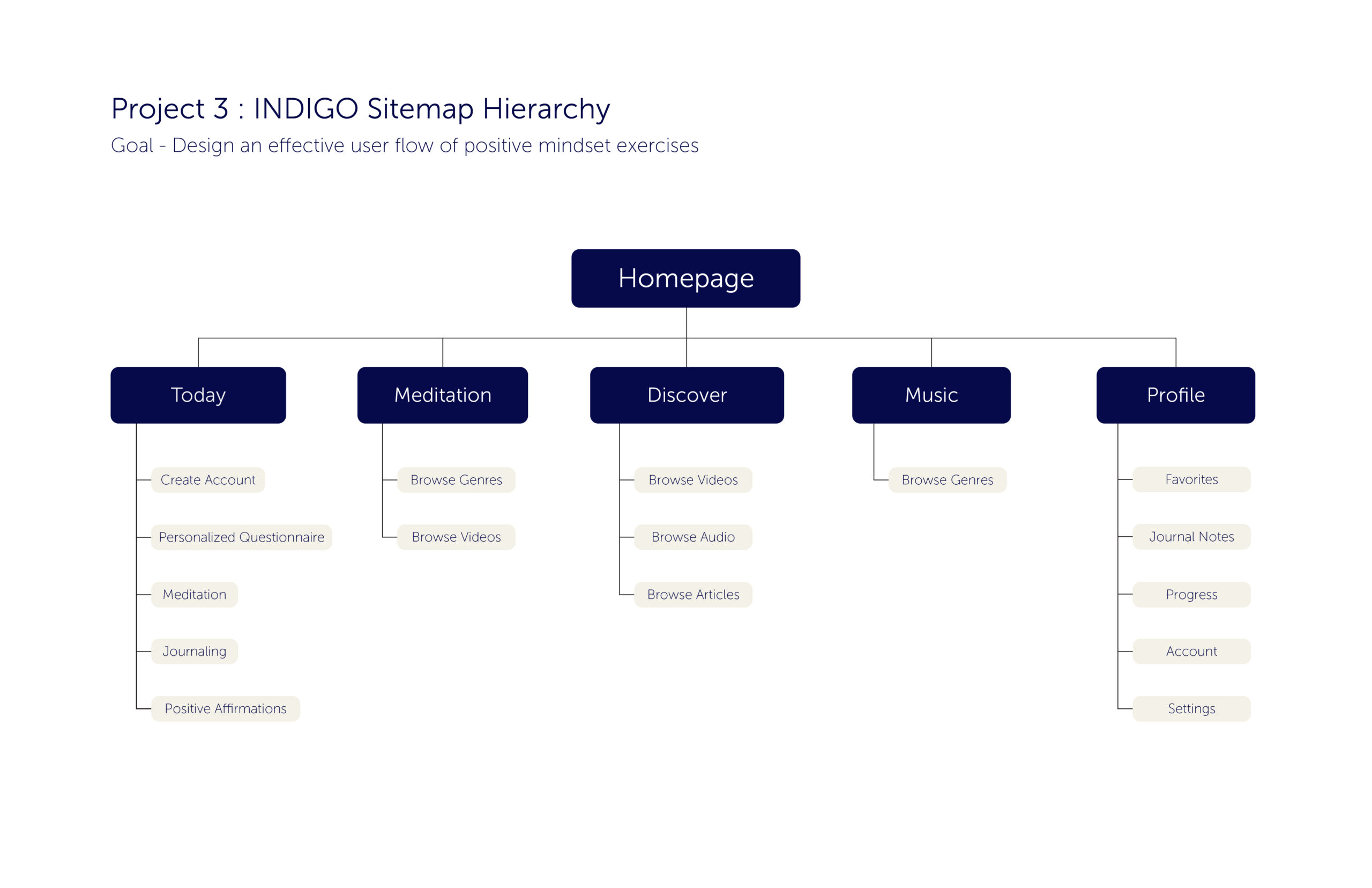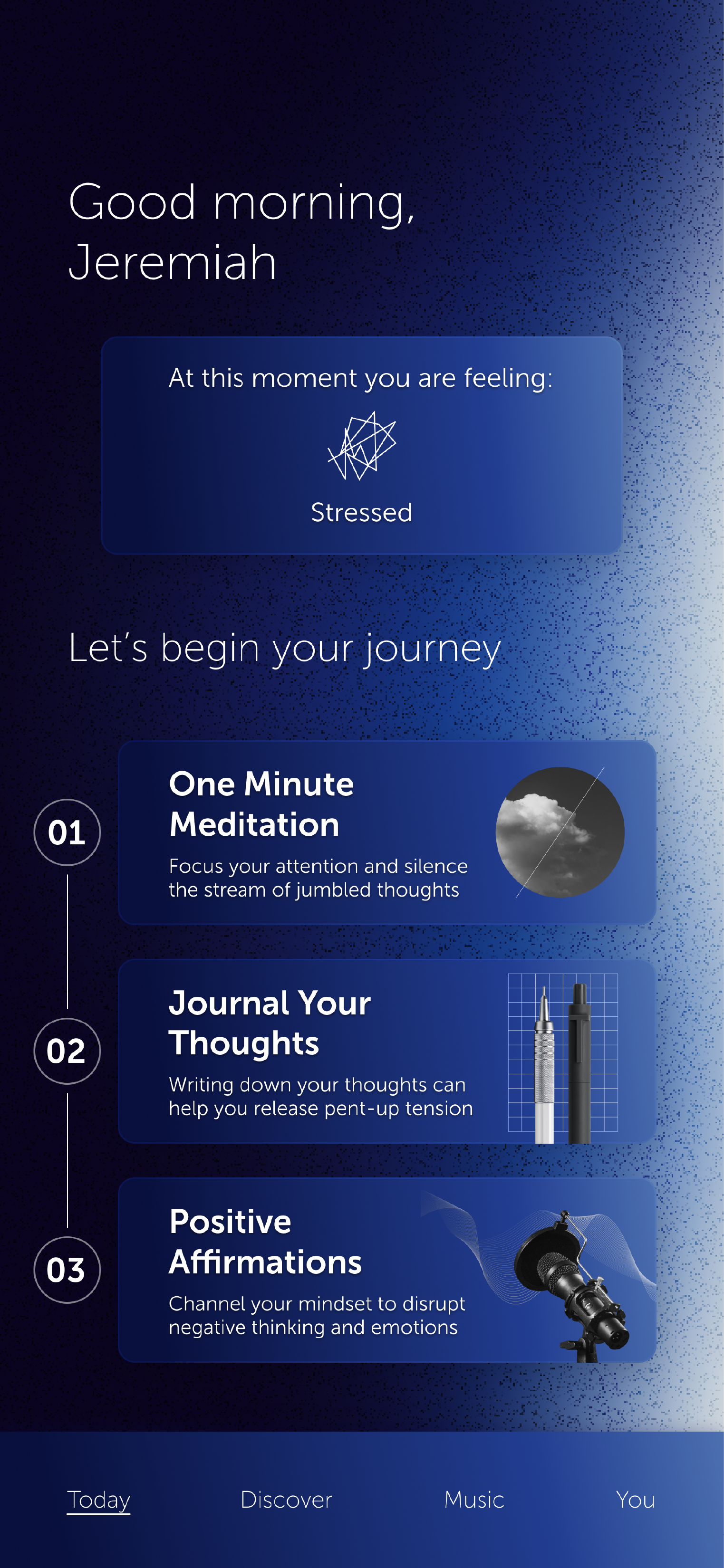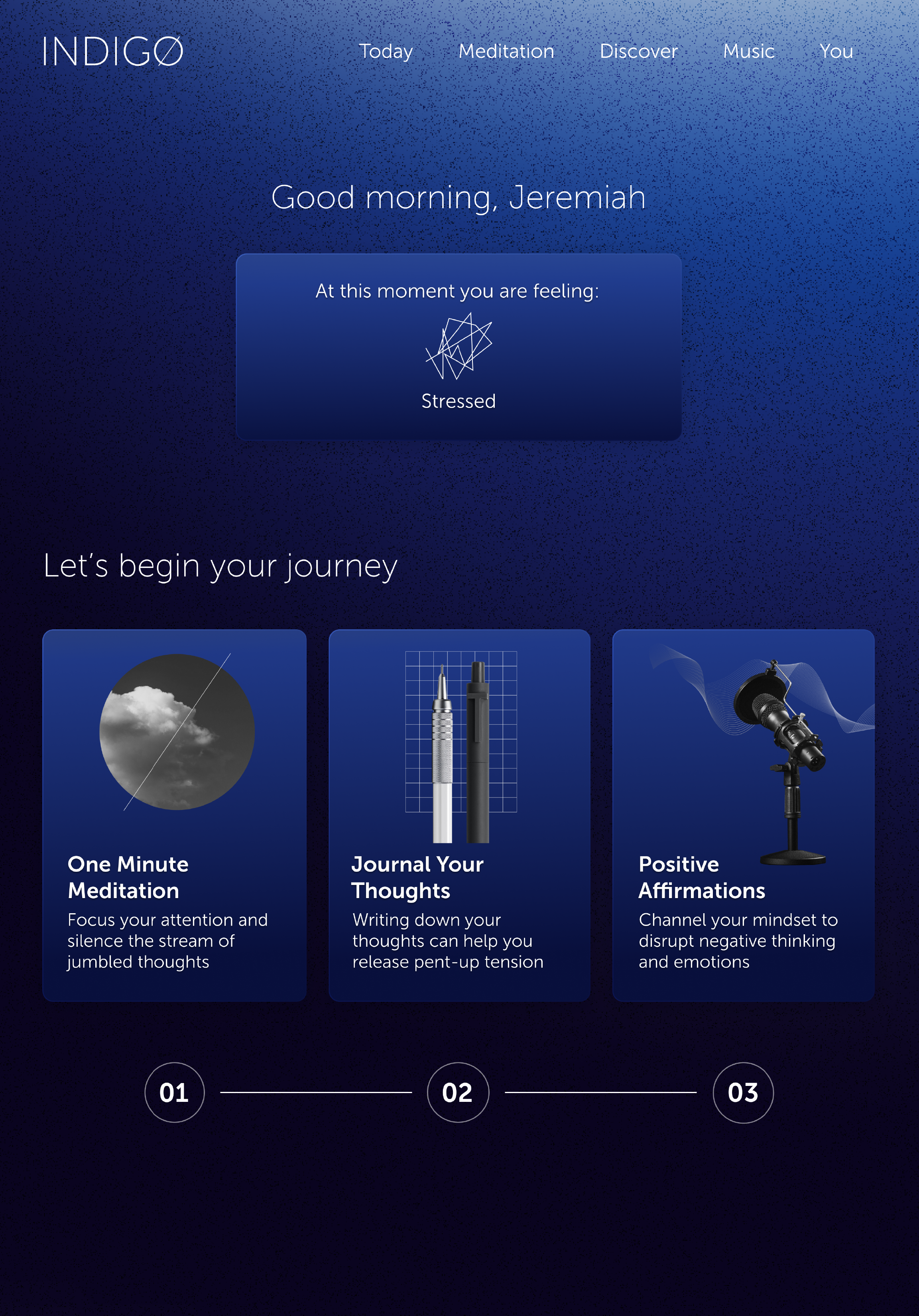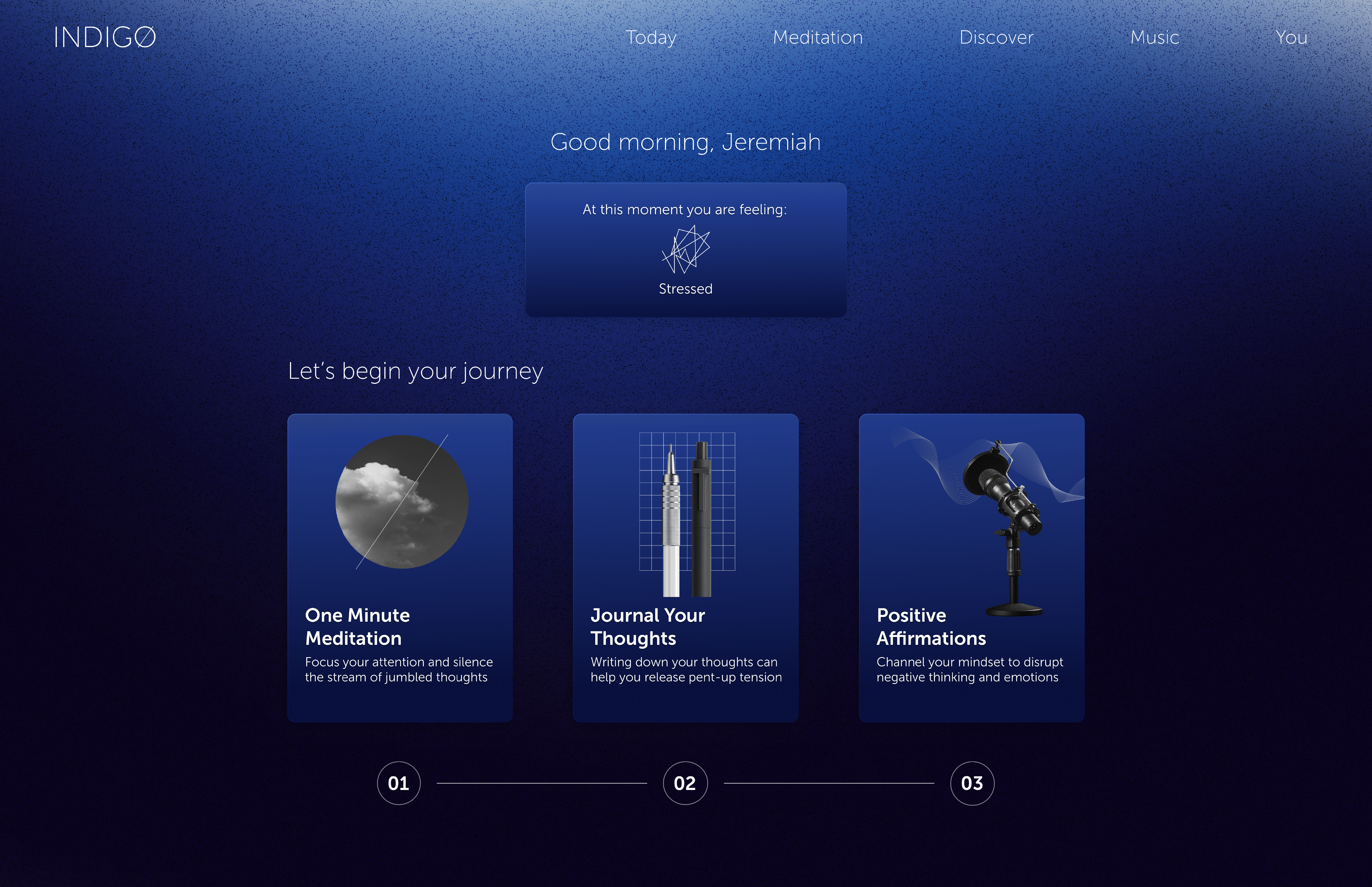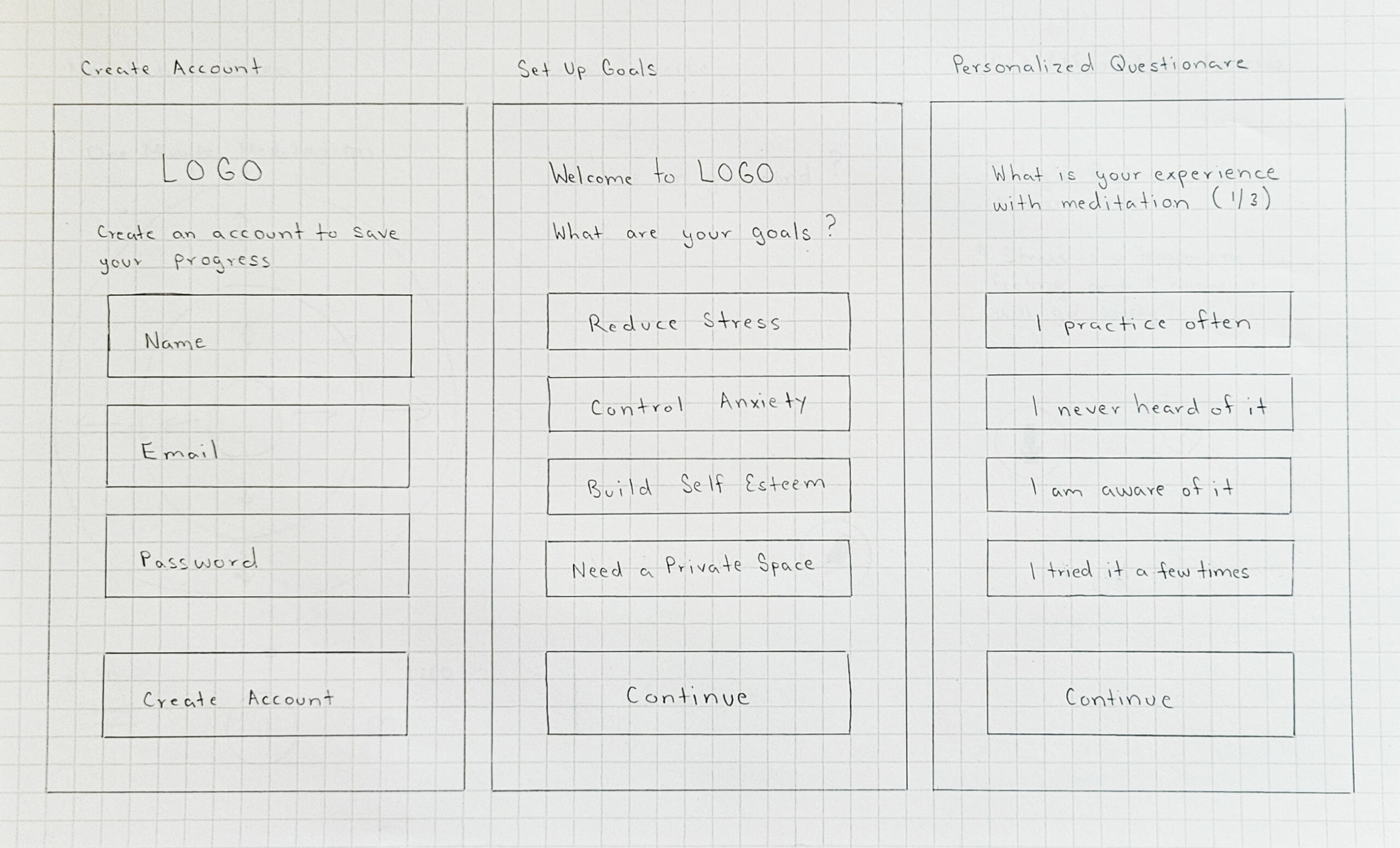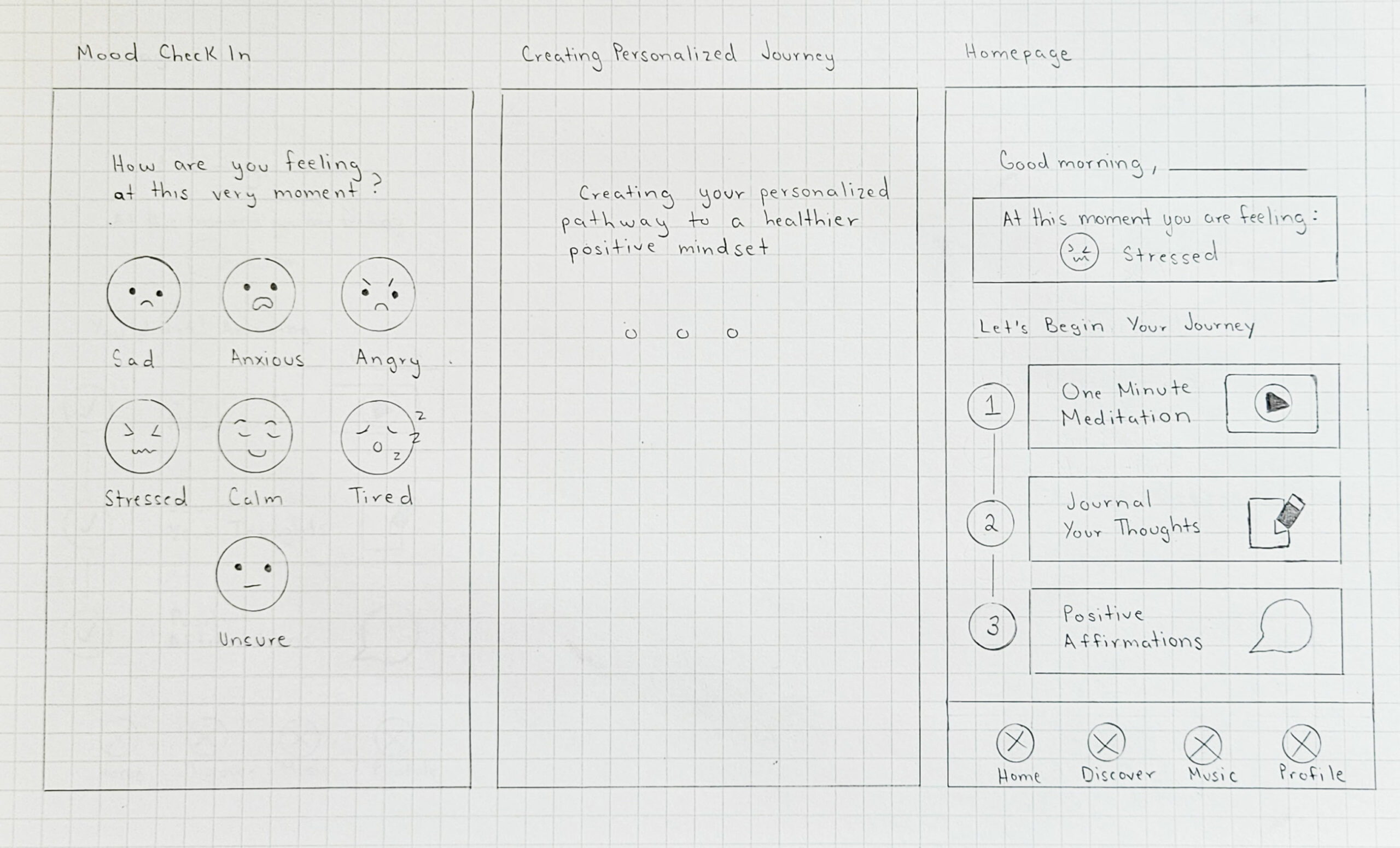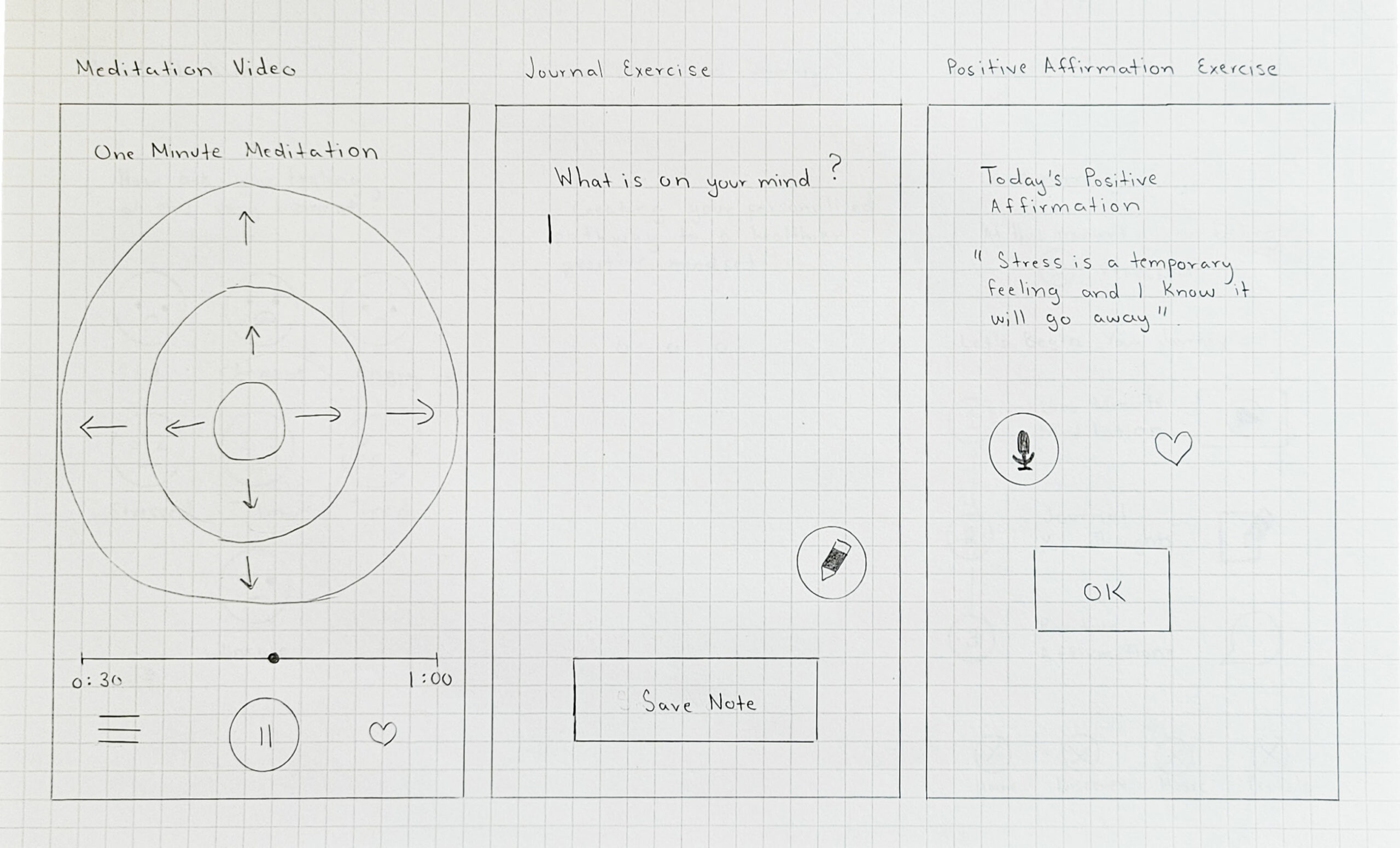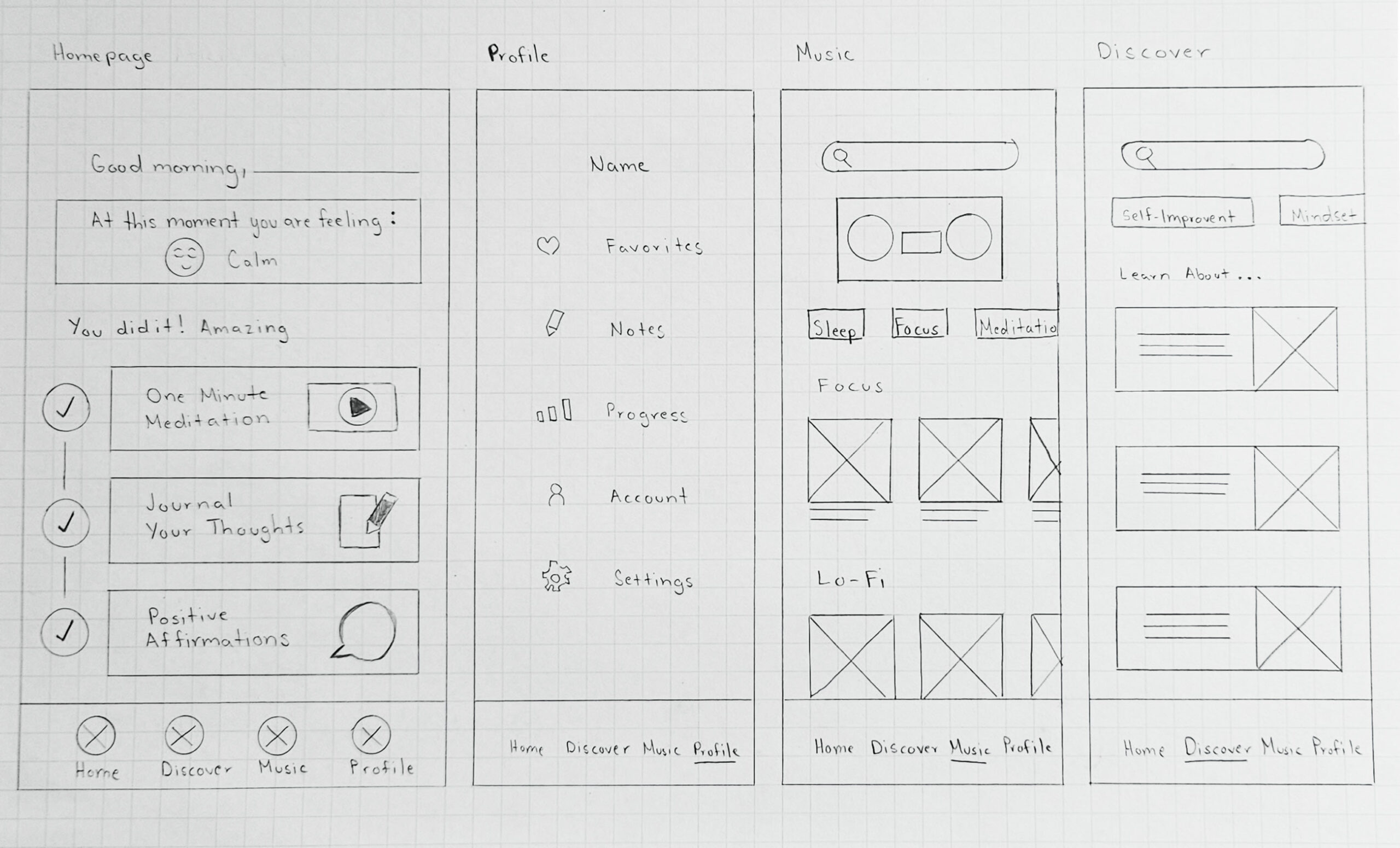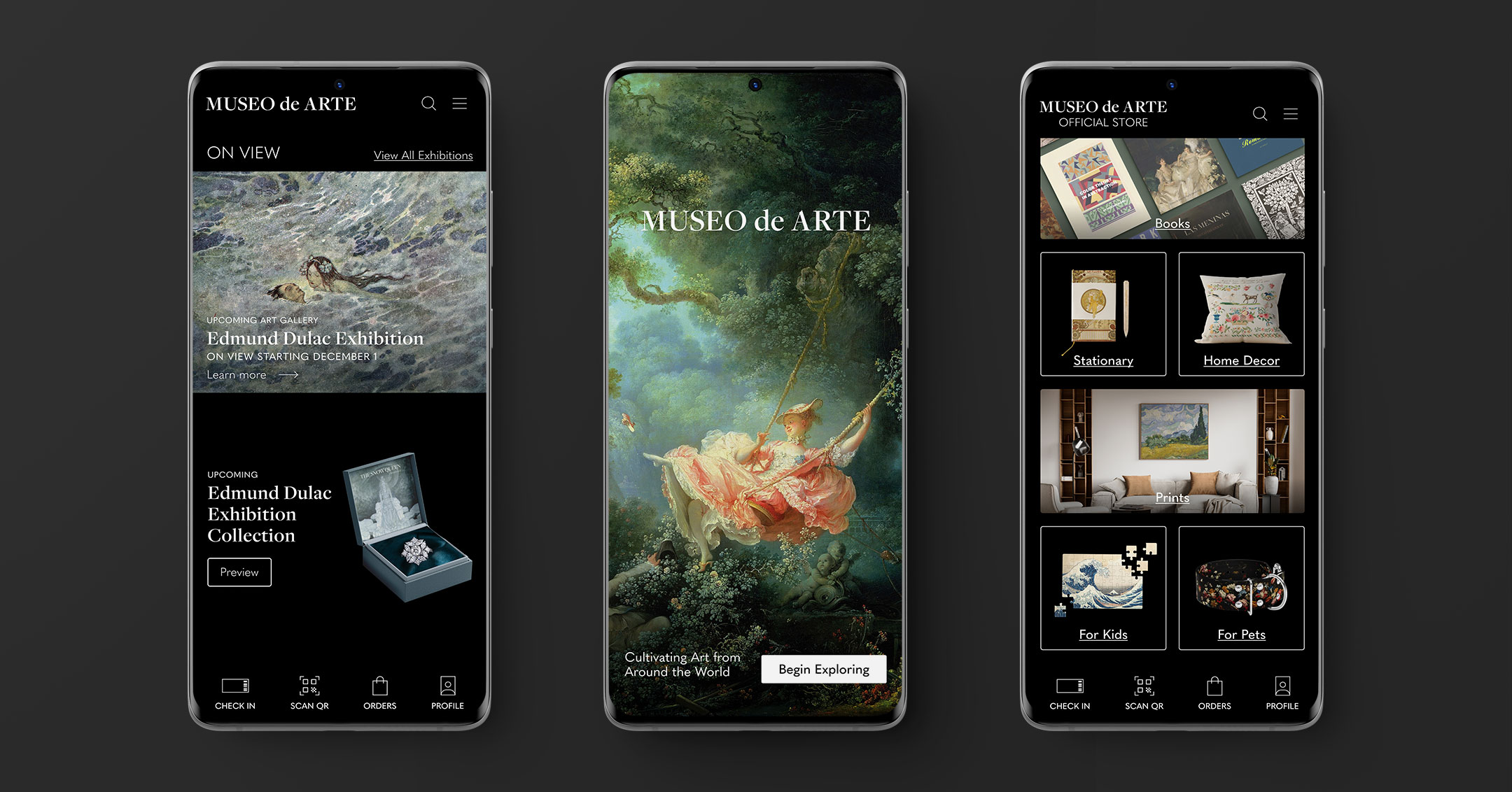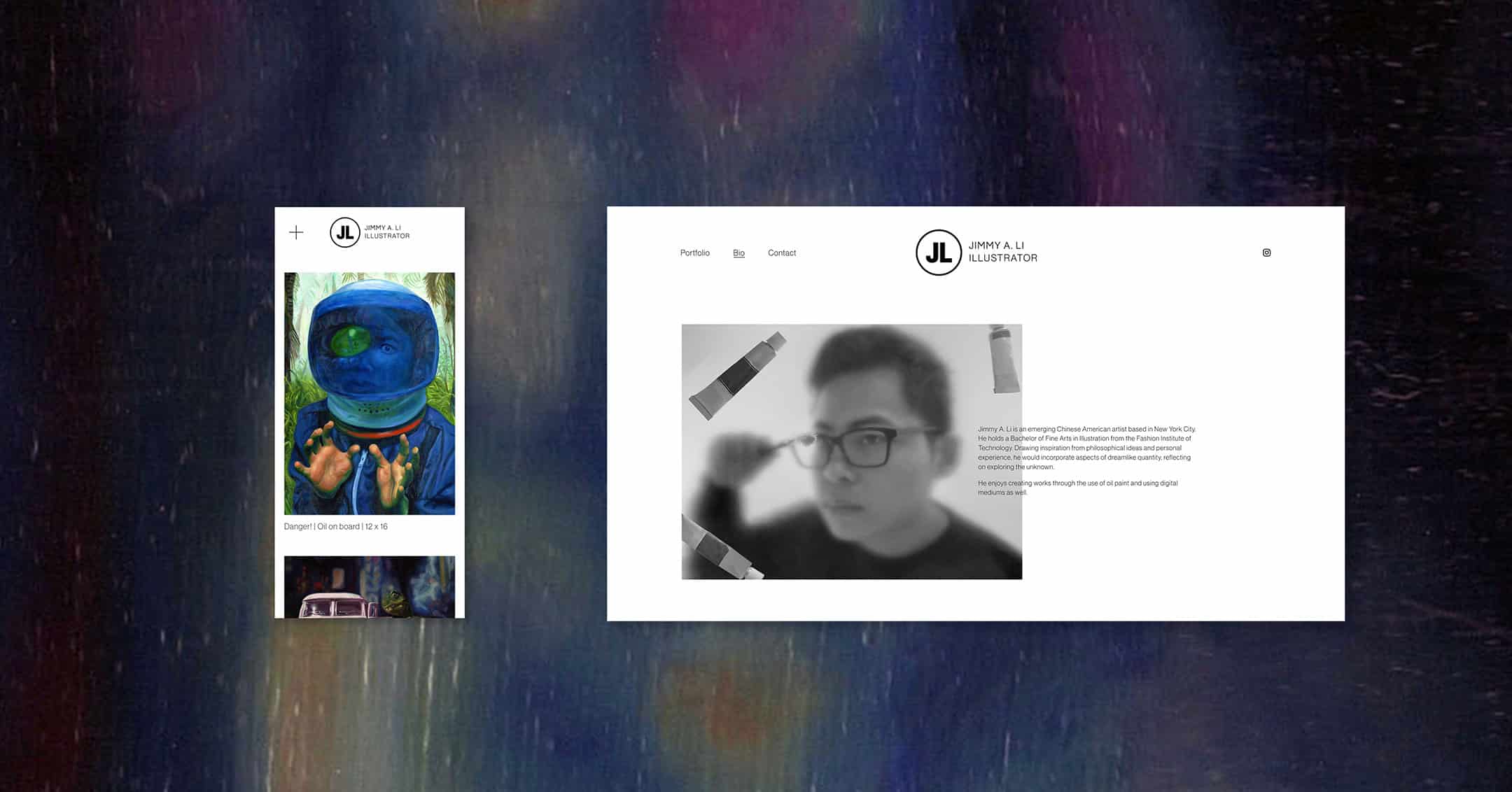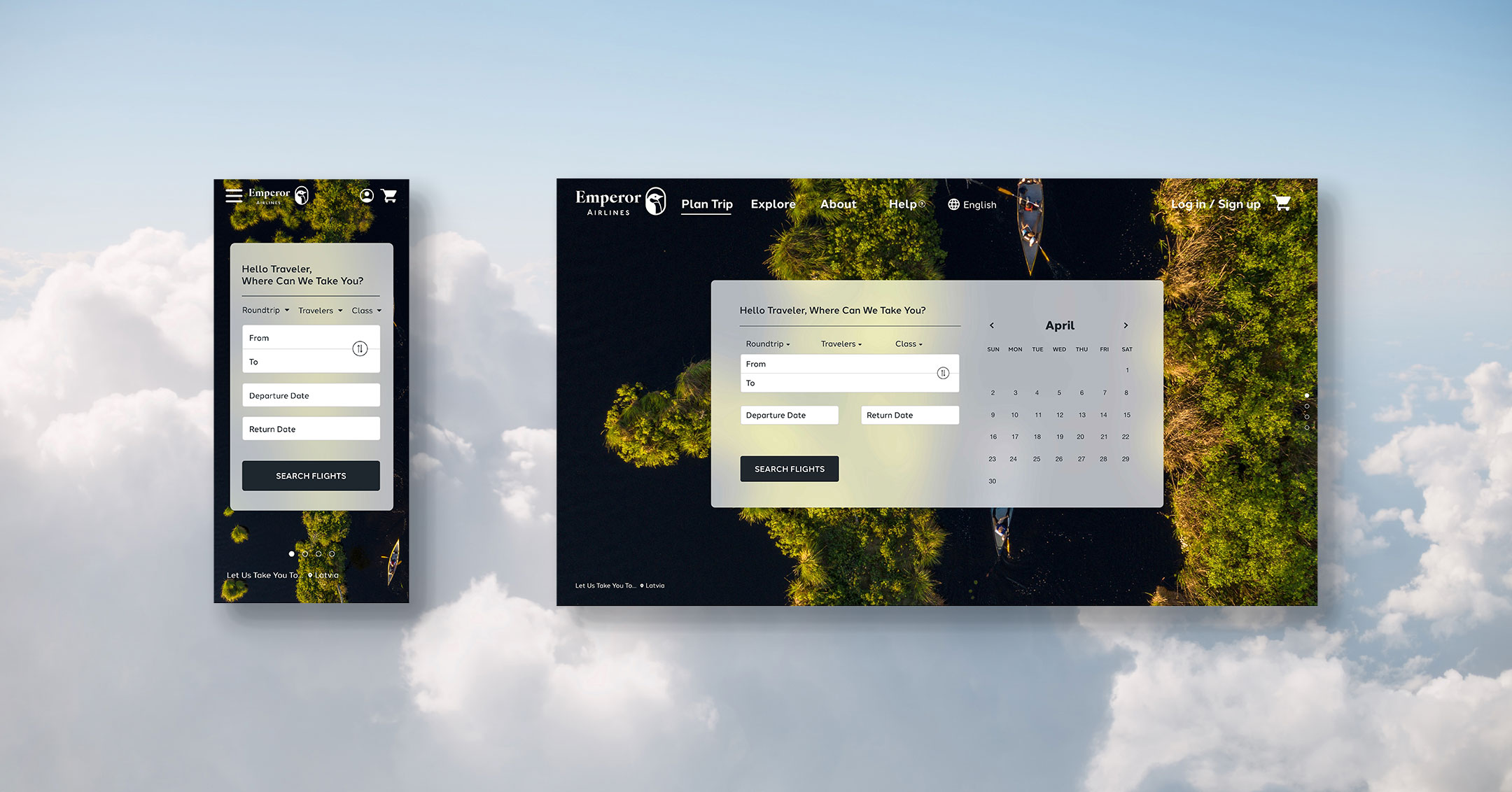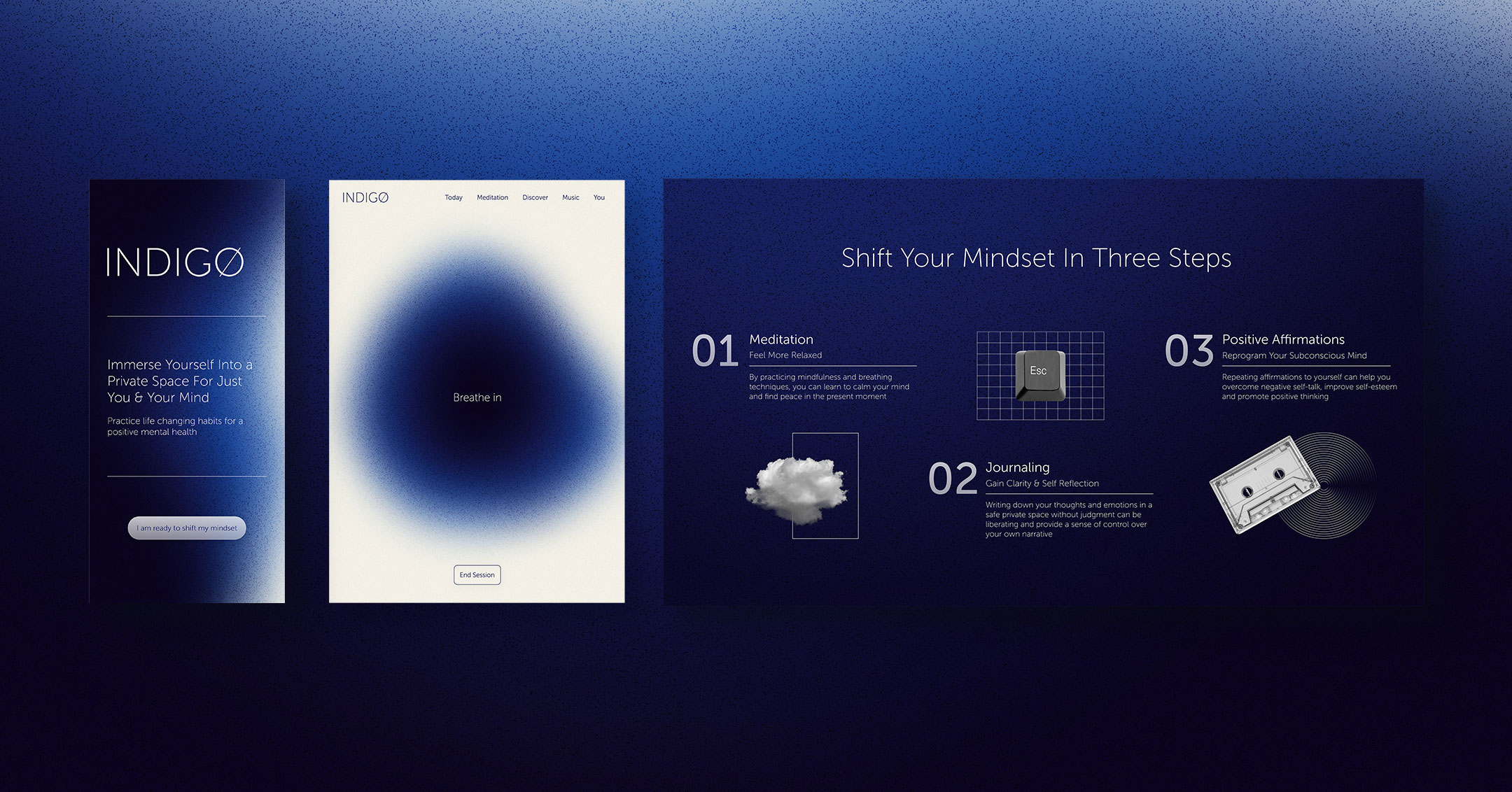INTRODUCTION
INDIGO is a mental health company focused on helping teenagers manage their mental mindset. The use of meditation, journaling, and positive affirmations can greatly reduce stress, anxiety, and improve self-esteem in a short amount of time.
Target audience are teenagers between the ages of 13 - 18.
*Please Note: This is a conceptual project completed as part of the Google UX Design Professional Certificate
Role
UX Designer
UX Researcher
Responsibilities
Competitive Audit
Conducting Interviews
Paper & Digital Wireframing
Low & High-Fidelity Prototyping
Conducting Usability Studies
Accounting for Accessability
Visual Brand Identity
Responsive Design
Iterating on Designs
Project Duration
14 Weeks
THE PROBLEM
One of the most common problems teenagers face in today’s modern world revolves around mental health. This includes depression, self-esteem issues, stress, anxiety, and dealing with immense pressure.
THE GOAL
Design an app that can improve mental health while reducing stress and anxiety in a short amount of time.
UNDERSTANDING THE USER
USER RESEARCH
After researching the leading causes of mental health among teenagers, I developed interview questions to be used in conducting user interviews. Most participants reported that they often struggle with self-esteem and often feel overwhelmed with stress and anxiety. The feedback received through research made it clear that users are willing to invest in an app that can help them reduce stress and anxiety if it was simple and quick to use.
EASY ACCESS
"I wish there was a single app where I can easily access resources that I need to help improve my mental health"
PRIVACY CONCERNS
"I don't want to deal with followers and having to share everything on social media. I just want my own private space"
USER FOCUS
"I want to make a positive change and be in control of my life. I need something that can help me do that"
MEET JEREMIAH
Our user persona Jeremiah was created after conducting interviews and gathering insights.
PROBLEM STATEMENT
Jeremiah is a busy high school student who needs to find a way to de-stress in a short amount of time because he wants to be able to make positive decisions and feel confident.
MEET VIVIAN
Our user persona Vivian was created after conducting interviews and gathering insights.
PROBLEM STATEMENT
Vivian is a young student working part time who needs to control her anxiety because she wants to be in control of her life.
MAIN USER FLOW
PERSONALIZED QUESTIONNAIRE
You begin the journey by answering five short questions. By setting up your goals, stating your level of experience with meditation and journaling, and how often negative self-thoughts occur, a personalized homepage will be set up and ready.
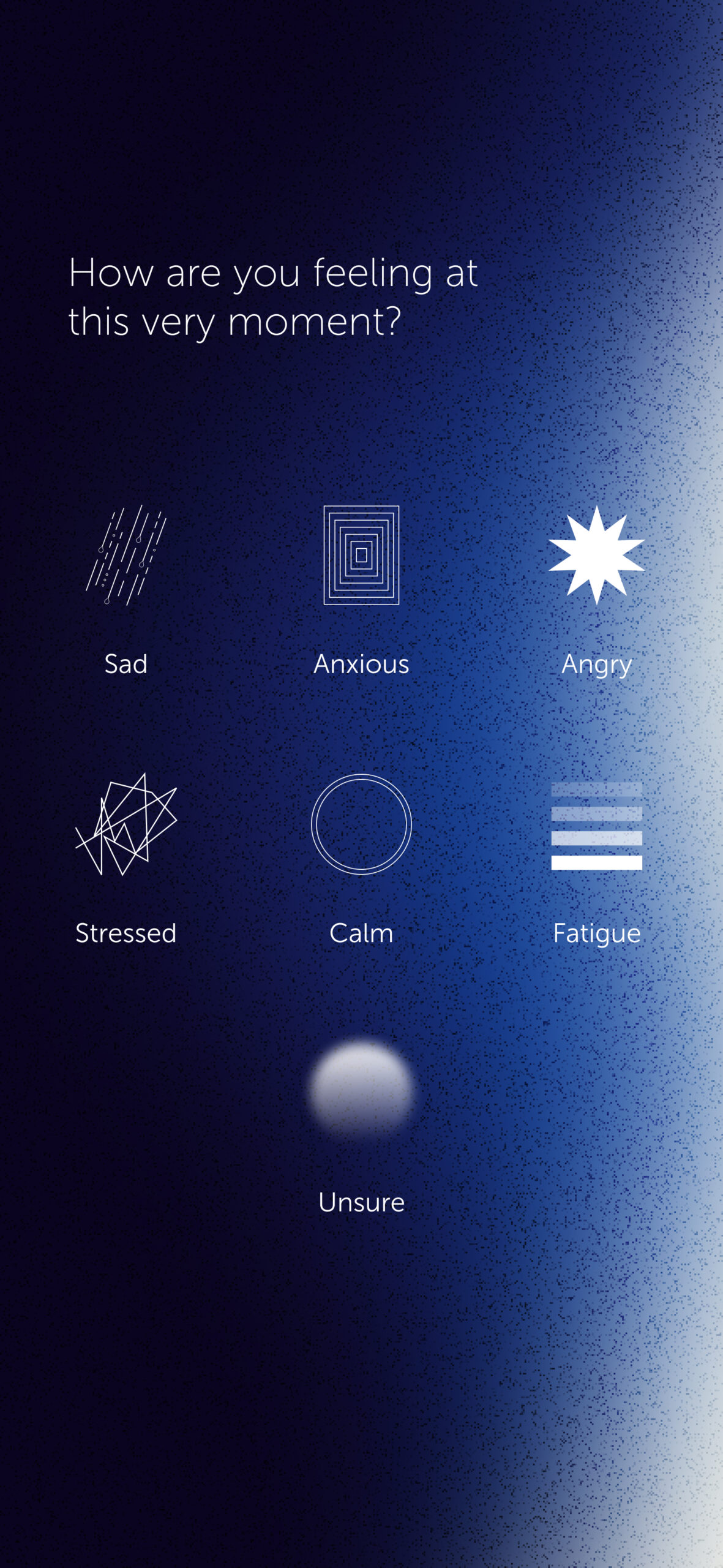
EMOTION CHECK-IN
The fifth question is stating your present feeling. By keeping track of your current emotions helps you acknowledge your mental state and further helps curate the type of articles and media found in the Discover section of the app.
TODAY'S JOURNEY
There are three focal steps to improving your mental mindset
- Meditation
- Journaling
- Positive Affirmations
These three steps have been shown to effectively improve your mental mindset and reduce negative emotions in a short amount of time.

MEDITATION
FEEL MORE RELAXED
Learn to calm your mind and find peace in the present moment by practicing breathing exercises. Depending on the user's level of experience, meditation can range from one minute to as long as twenty minutes as part of their main journey.
JOURNALING
GAIN CLARITY & SELF REFLECTION
Writing down your thoughts can be a liberating experience. It can help users release bottled-up feelings, tension, negativity, while also providing them with a sense of control over their own narrative. When journaling users are always assured that their private thoughts can be tossed out or saved for future self-reflection.
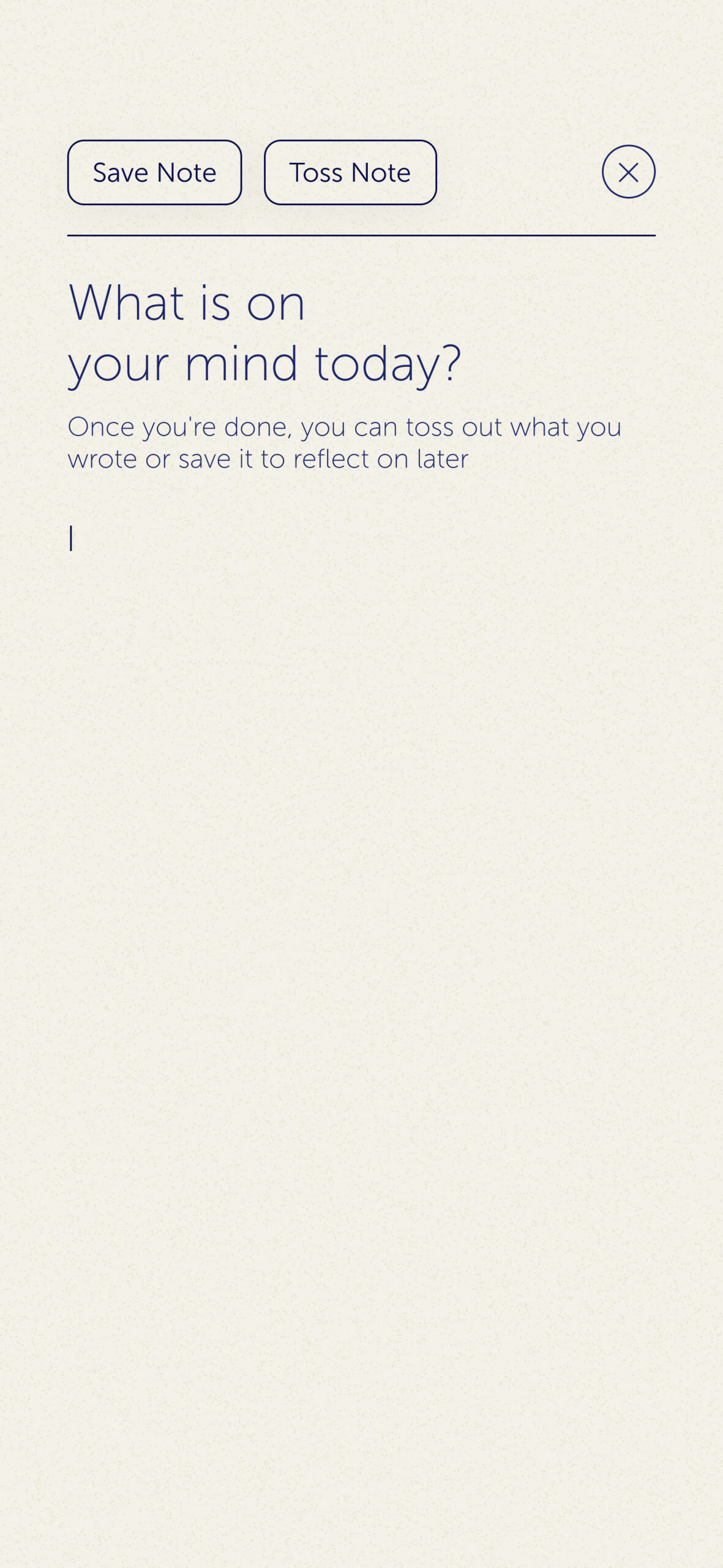
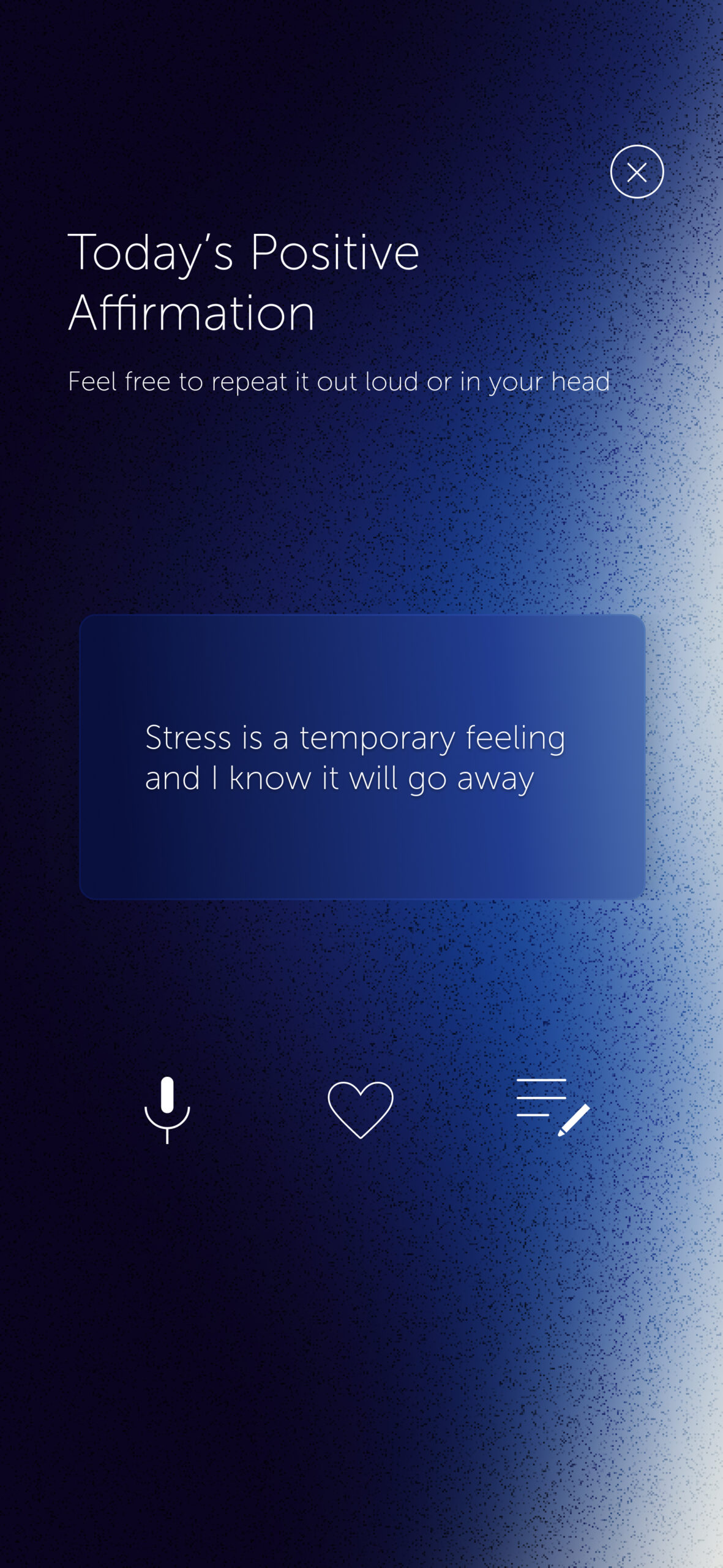
POSITIVE AFFIRMATIONS
REPROGRAM YOUR SUBCONSCIENCE MIND
Learn to overcome negative self-thoughts by saying positive affirmations. Positive affirmations can be quotes, phrases, or expressions that can help channel a new positive mindset.
- Users can use the microphone to record themselves repeating affirmations. By hearing yourself speak, you begin to build confidence, self-esteem, new thought patterns, and be in control
- Users can favorite affirmations that they feel connected towards
- Users can write their own affirmations that are personal to them
EXPERIENCE INDIGO
View INDIGO's high-fidelity prototype here.
RESPONSIVE DESIGNS
THE PROCESS
COMPETITIVE AUDIT
The competitive audit goal was to identify and understand the effectiveness of features currently available in the marketplace that helps reduce stress for individuals.
The key competitors in my audit are Headspace, Calm, and Youtube. Headspace and Calm being direct competitors and Youtube being an indirect competitor.
Headspace offers personalized and curated videos and audios based on your personal goal. Monthly check-ins on how you’re doing. Each day is a set of new content. Meditation is a priority feature.
Calm offers personalized and curated videos and audios based on your current mood. Daily check-ins on how you’re doing. Each day is a set of new content. Meditation is a prioirity feature.
Youtube offers a strong community of content creators and topics based on meditation and self-growth. Recommended videos are highlighted to explore more. Meditation is a large community.
GAPS & OPPORTUNITIES
After analyzing the strengths and weaknesses of my competitors I identified key gaps and opportunities.
GAPS
- No opportunities for journaling. Journaling has been shown to be a great way to reduce stress alongside meditations
- There are no opportunities of saying positive affirmations which has also been shown to be a great way to improve mental health
- Everything has a shared feature despite social media being a leading cause in mental health
- Direct competitors have inconsistent transitions and features between the app and desktop devices
OPPORTUNITIES
- Optimize a journaling feature as an important activity alongside meditation
- Optimize positive affirmations as an important activity alongside meditation and journaling
- Optimize a personal space for a user to feel private in their own thoughts ( no need to share stats, activities, posts, etc. )
- Optimize content to fit a user’s beginner sessions to more advance sessions
- Optimize content to best suit a user’s current emotion
- Optimize seamless transitions between app and desktop devices
VALUE PROPOSITION
Be In Control of Your Mindset Through Hands-On Exercises and Truly Acknowledge Living In The Present Moment
PAPER WIREFRAMES
I brainstormed ideas for how to address gaps identified in the competitive audit. My focus was specifically on three activities to help reduce negative feelings under a short amount of time.
DIGITAL WIREFRAMES
After completing a short personalized questionnaire, I created the initial homepage to fit a user’s needs based on their level of experience with activities such as meditating, journaling, and positive affirmations.
- Have a mood check in to monitor current emotions
- 3 tasks are clearly displayed and organized
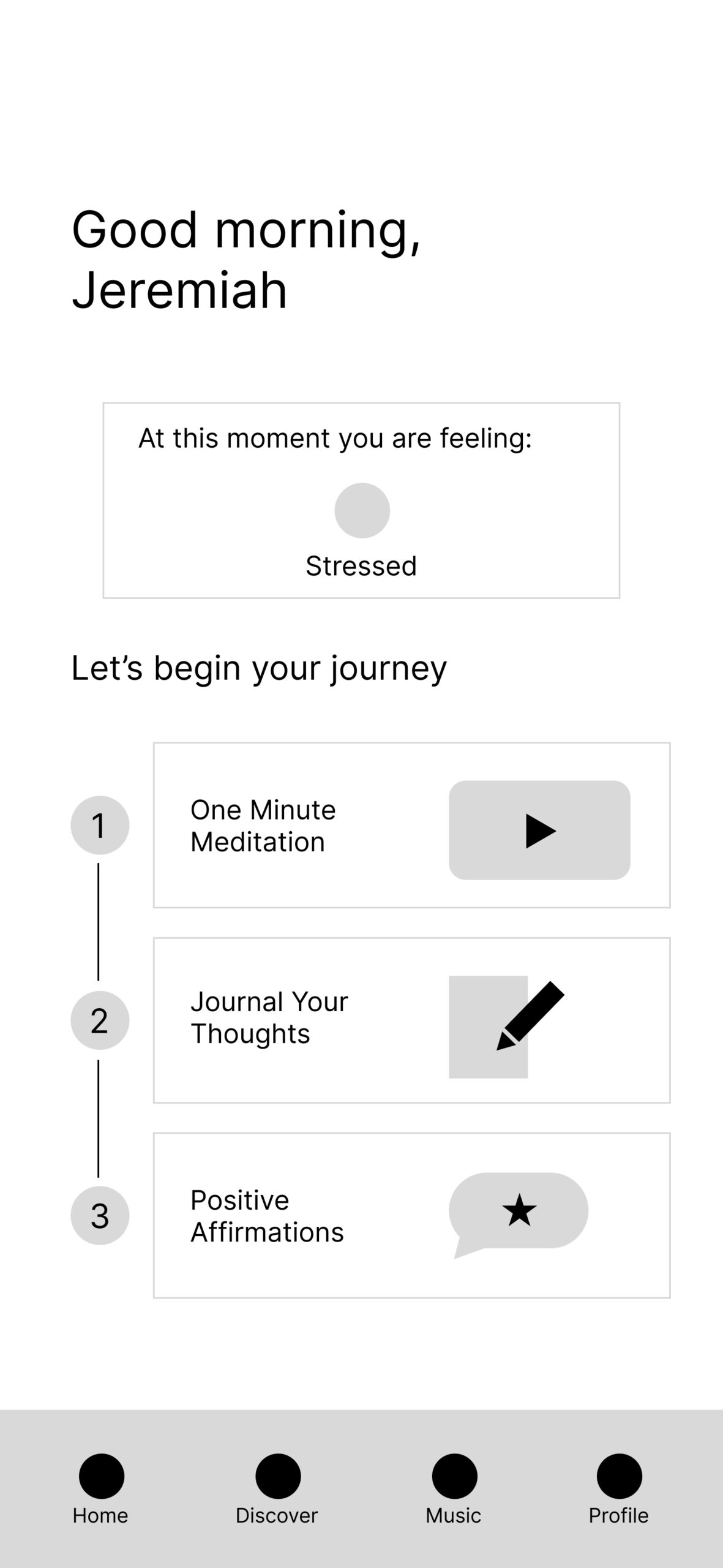
LOW - FIDELITY PROTOTYPE
To prepare for usability testing, I created a low-fidelity prototype that connected the user flow of going through a personalized questionnaire and completing the 3 tasks to help reduce stress and anxiety.
View INDIGO's low-fidelity prototype here.
USER TESTING
USABILITY STUDY: FINDINGS
I conducted a usability study to find out the specific challenges that users might face when completing core tasks of the mental health app: answering questionnaires, completing the meditation, journaling, and positive affirmation sessions.
After conducting a usability study I gathered all information to create an affinity map. Next I analyzed and synthesized results to find insights.
INSIGHT
ADD ACTIVITY EXPLANATIONS
01
Users want to understand why doing a certain activity is beneficial to their mental health
INSIGHT
ADD CUSTOMIZED AFFIRMATIONS
02
Users want to be able to see more affirmations and have the option to write their own to better suit what they need at the moment
INSIGHT
ADD MEDITATION CAPTIONS
03
Users want to be able to know what are the cues for inhaling/exhaling during the meditation exercise
REFINING THE DESIGN
SOLVING INSIGHT 01
Based on insights from usability studies, I applied an onboarding screen before starting a main activity such as journaling. It includes a brief explanation about the activity and why it is beneficial.
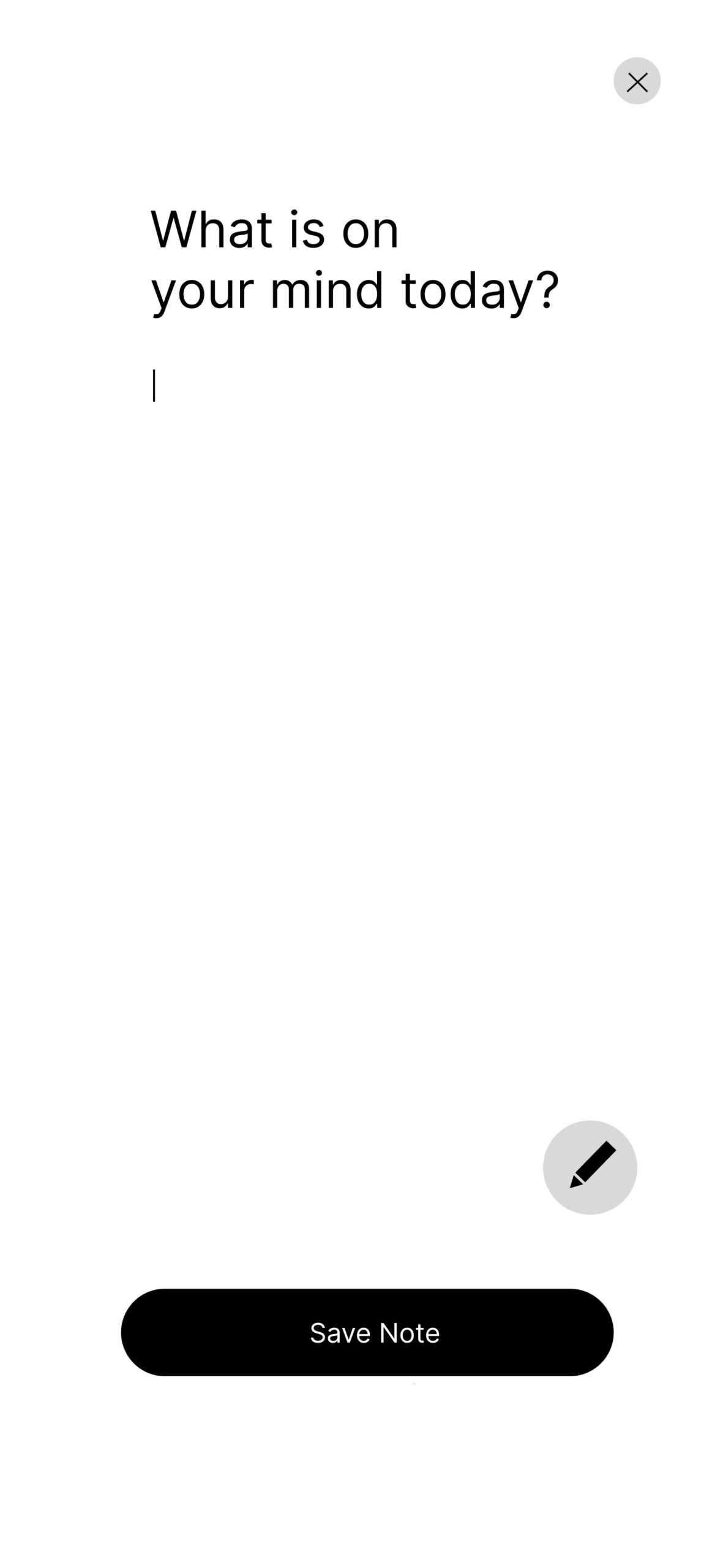
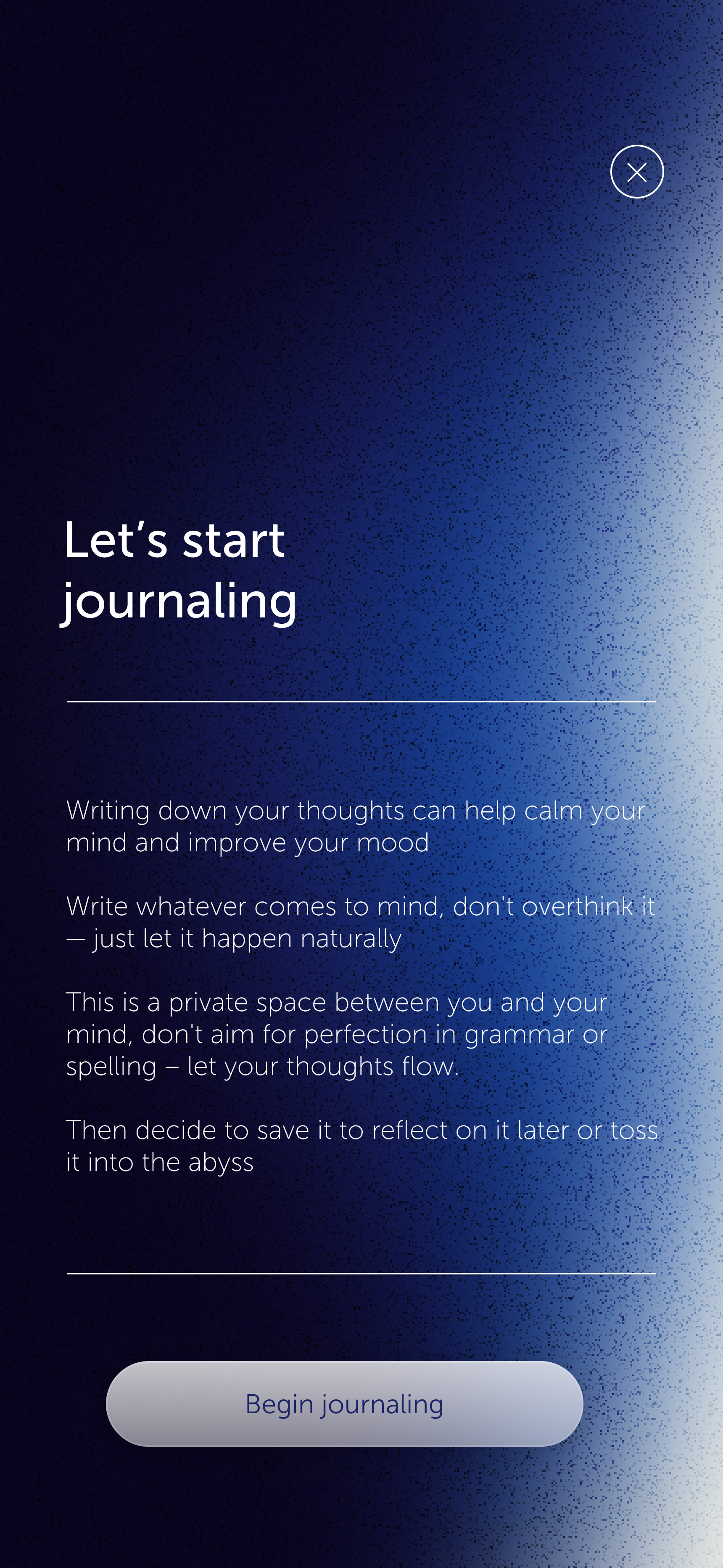
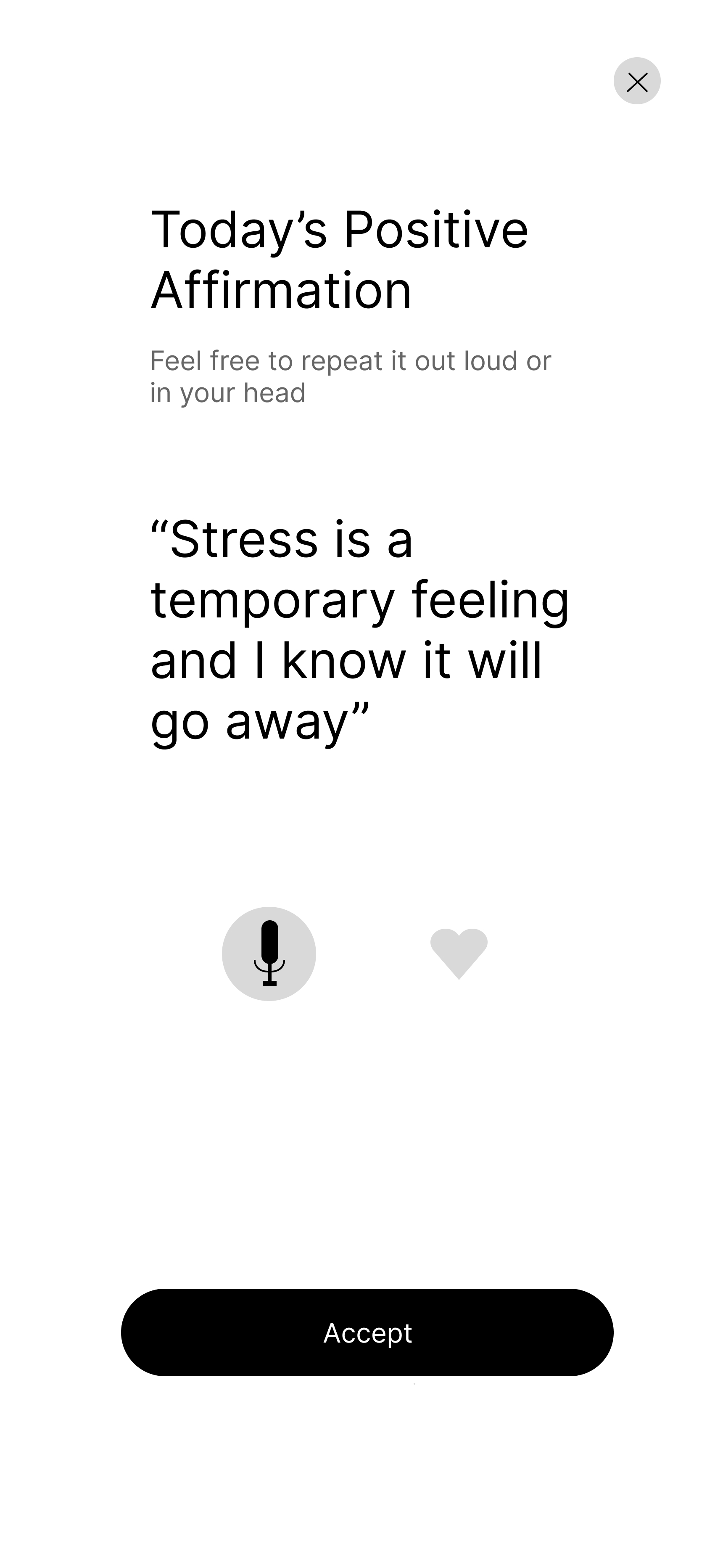

SOLVING INSIGHT 02
Additional designs were implemented to create a better user experience for positive affirmations. Based on user feedback, now you can swipe through various affirmations and have the ability to create your own affirmations
SOLVING INSIGHT 03
To make the meditation exercise more accessible, captions were added to match the flow of breathing. Since meditation should be a focused activity, I decided to switch from a video format to a more simple format. By removing the time progress bar, users are less distracted and can really focus on the meditation.


GOING FORWARD
TAKEAWAYS
IMPACT
Users were very attracted to the aesthetics and appreciated a simple and fast access to activities that helped them improve their mental health. They see themselves using this app and its features on a daily basis.
WHAT I LEARNED
I learned how to study articles relative to my user research and provide an insightful path that is functional and feasible to my goal.
NEXT STEPS
MORE USER TESTING
Conduct more user studies and research to find out how successful the app is in reaching the goal to reduce stress and anxiety and improve mental health among a wide range of ages.
MEASURING SUCCESS
Once launched, the success of the app can be measured through downloads, app-reviews, and number of daily active users.
